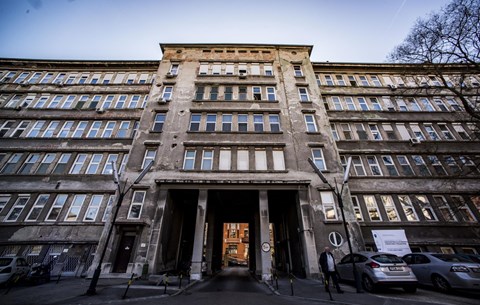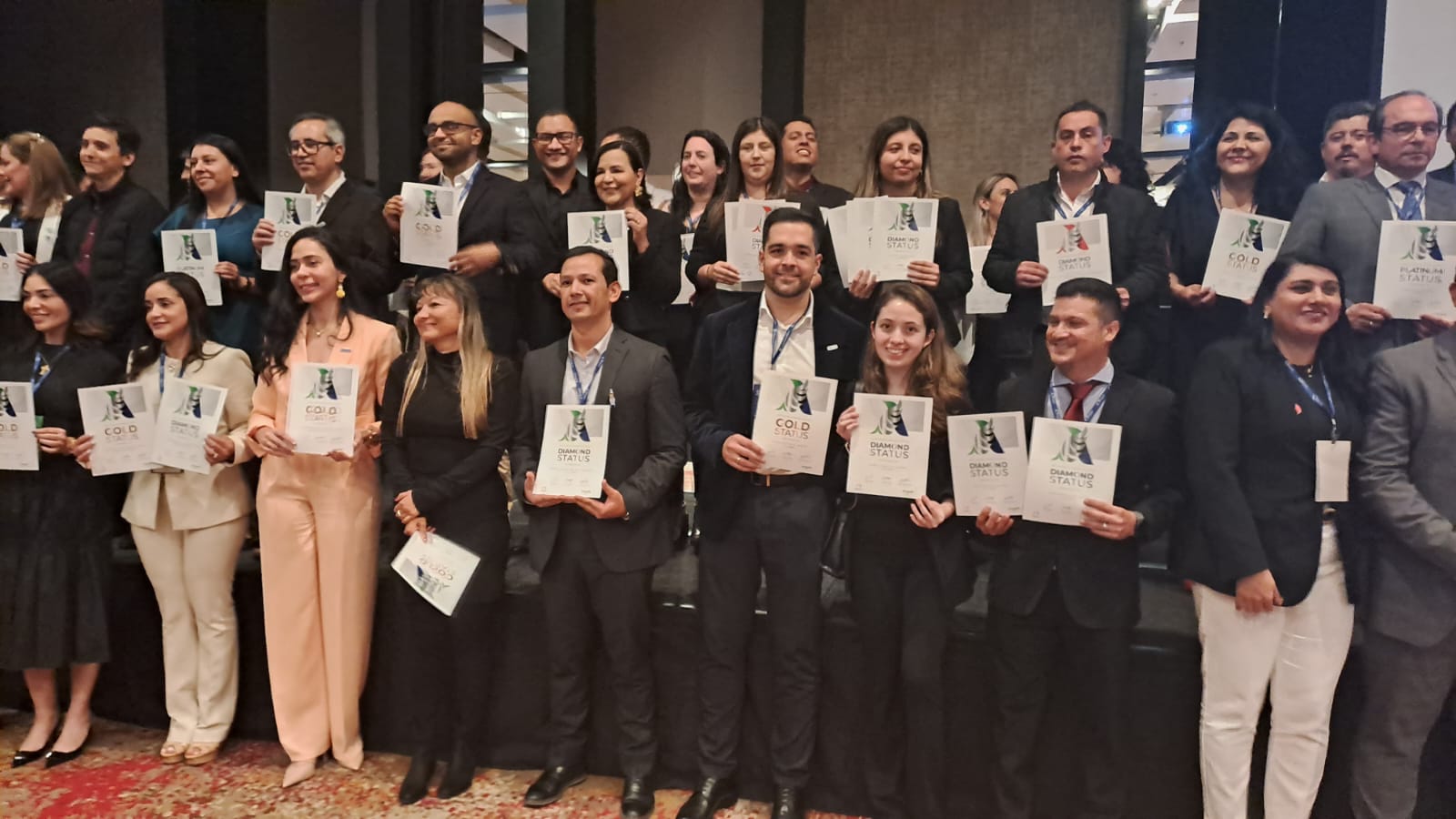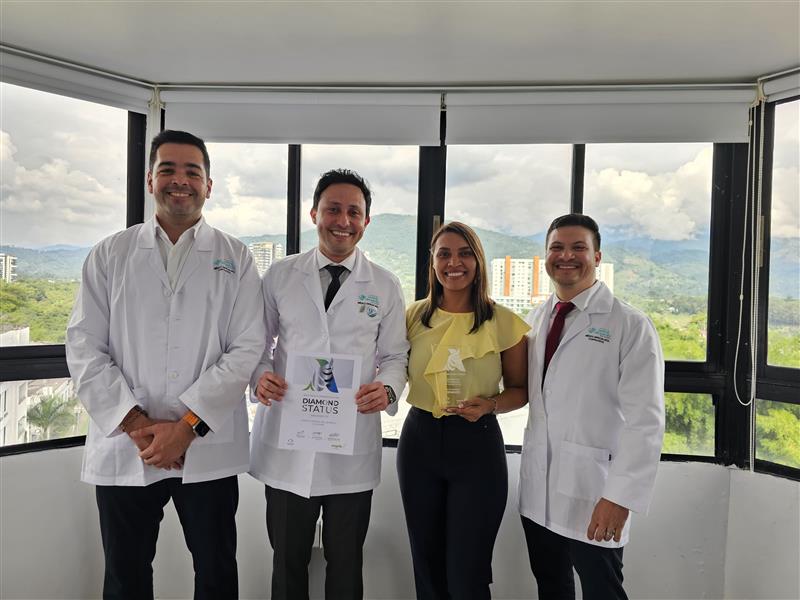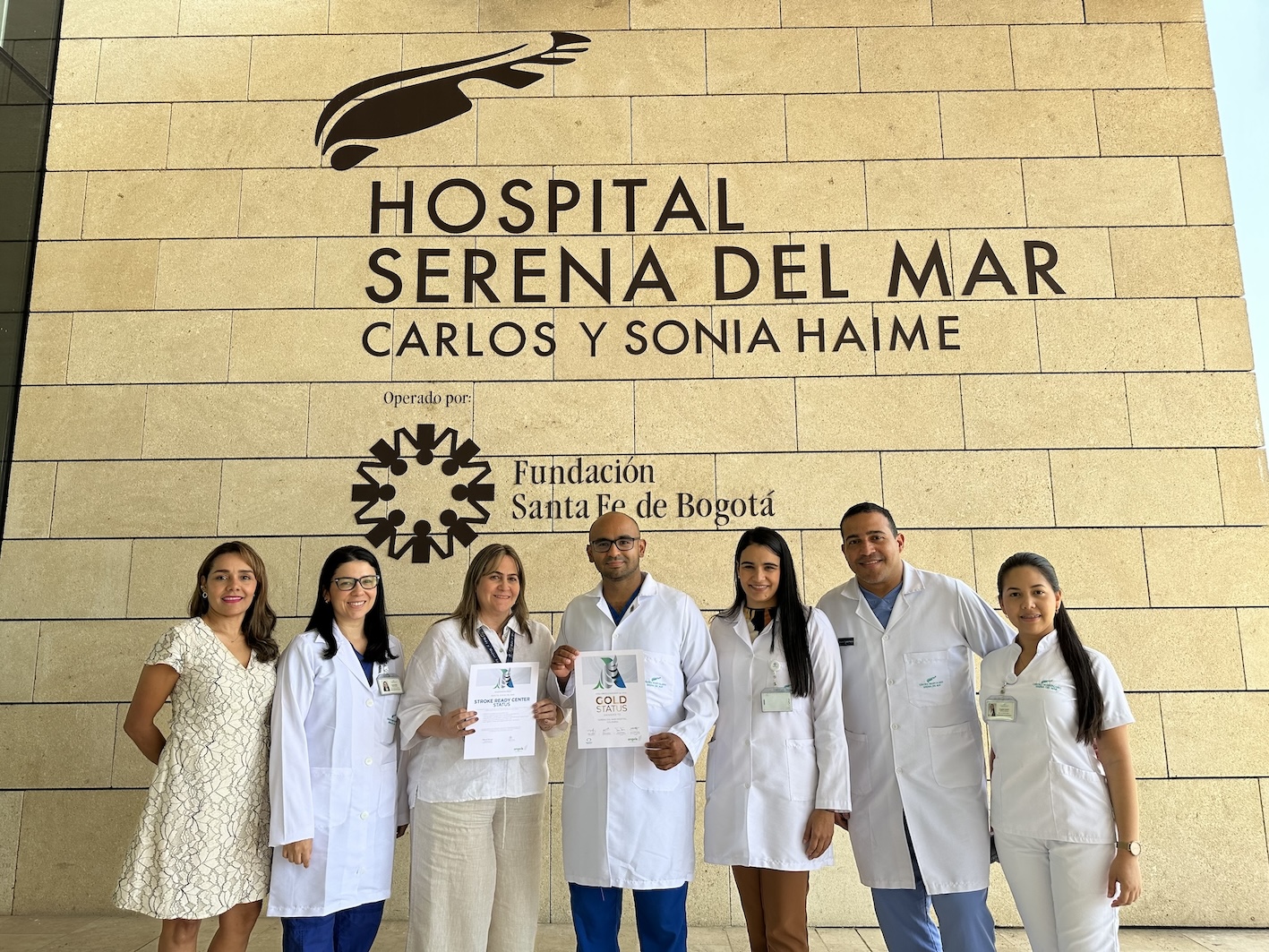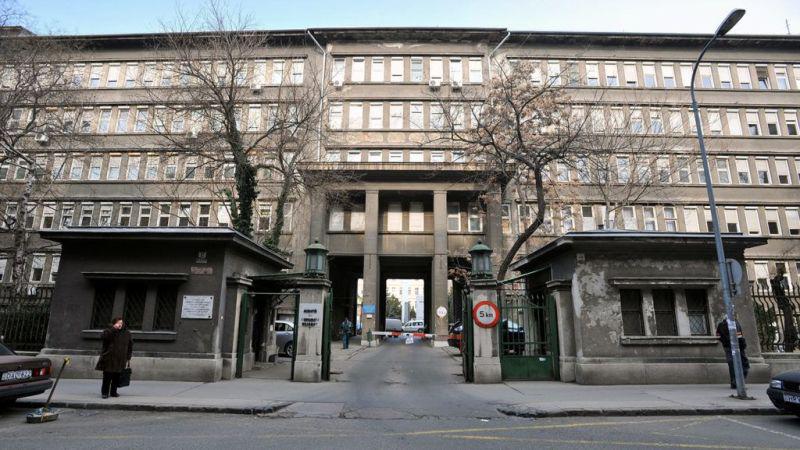
ที่ Péterfy Hospital ในตัวเมืองบูดาเปสต์ แน่นอนว่าความเร่งด่วนเป็นเรื่องที่สําคัญ เช่นเดียวกับโรงพยาบาลทั่วไป เป็นจุดศูนย์กลางการบาดเจ็บที่มักวัดความแตกต่างระหว่างชีวิตและการเสียชีวิตในไม่กี่วินาที
สภาพแวดล้อมที่เหมาะสําหรับความเร็ว เป็นสภาพแวดล้อมที่น่ากลัวสําหรับการรักษาโรคหลอดเลือดสมอง ซึ่งต้นทุนของการสูญเสียไปหนึ่งนาทีถูกนับในเซลล์ประสาท 1.9 ล้านเซลล์ ไซแนปส์ 14 พันล้านเซลล์ และเส้นใยไมอีลิน 12 กม. ซึ่งความคิดของมนุษย์ผ่านพ้นไป ในทางกลับกัน ทุกนาทีที่ประหยัดได้ระหว่างการเกิดอาการและการรักษาเพื่อฟื้นฟูการไหลของเลือดและออกซิเจนไปยังสมองสามารถสร้างความแตกต่างระหว่างหายนะที่เปลี่ยนแปลงชีวิตและกลับมามีชีวิตอีกครั้ง
ทีมดูแลรักษาโรคหลอดเลือดสมองที่โรงพยาบาล Péterfy ได้ตระหนักถึงความแตกต่างที่เกิดขึ้นในหนึ่งนาที ได้เติบโตในสภาพแวดล้อมที่มีผู้คนพลุกพล่านนี้ ซึ่งโครงสร้างพื้นฐานทุกชิ้นได้สนับสนุนความพยายามของตนเองในการกําจัดความล่าช้า ปรับปรุงการตัดสินใจ และทําให้แน่ใจว่าไม่มีผู้ป่วยเพียงรายเดียวที่อยู่นอกเหนือช่วงขนาดยาที่ให้การรักษา จิตวิญญาณของการแข่งขันที่เป็นมิตรโดยเฉพาะอย่างยิ่งแพทย์โรคหลอดเลือดสมองอายุน้อยได้ตัดเวลาจากประตูจนได้รับการรักษาออกไปอีก ซึ่งให้ประโยชน์ที่สําคัญแก่ผู้ป่วยของพวกเขา
แต่ในเดือนพฤษภาคม 2021 เนื่องจากภาคธุรกิจการดูแลสุขภาพทั่วโลกเริ่มเกิดขึ้นจากวิกฤตสุขภาพที่ร้ายแรงที่สุดในศตวรรษ ทีมดูแลรักษาโรคหลอดเลือดสมองที่โรงพยาบาล Péterfy กําลังเผชิญกับวิกฤตของตนเอง การปรับโครงสร้างสถาบันจะย้ายแผนกประสาทวิทยาไปยังอาคารที่อยู่ห่างออกไปหนึ่งกิโลเมตร แทนที่โครงสร้างพื้นฐานที่สร้างขึ้นสําหรับความเร็วด้วยสภาพแวดล้อมค่อนข้างสงบ ความท้าทายของพวกเขาคือการให้การดูแลในระดับที่คล้ายกันในสภาพแวดล้อมที่มีการเตรียมน้อยกว่ามากสําหรับการกระทําที่รวดเร็วและการโฟกัสที่คมชัดด้วยเลเซอร์ที่ช่วยช่วยชีวิตในกรณีฉุกเฉิน
เกือบ 18 เดือนต่อมา โรงพยาบาล Péterfy กําลังจะก้าวขึ้นเป็นโรงพยาบาลแห่งที่สามในฮังการีเพื่อรับรางวัล ESO Angels Diamond Award ซึ่งมอบให้แก่โรงพยาบาลที่มีคุณสมบัติตรงตามเกณฑ์ที่เข้มงวดที่สุดในด้านความเป็นเลิศในการดูแลผู้ป่วยโรคหลอดเลือดสมอง
นอกจากการทํางานอย่างหนักแล้ว นี่คือเหตุผลห้าข้อที่ทําให้ทีมดูแลรักษาโรคหลอดเลือดสมองที่โรงพยาบาล Péterfy ไม่เพียงแต่ตอบสนองความท้าทายเท่านั้น แต่ยังเอาชนะการได้รับรางวัลนานาชาติอีกด้วย
1 พวกเขาทํากันเป็นทีม
การดูแลผู้ป่วยโรคหลอดเลือดสมองคือการทํางานเป็นทีม ยิ่งทีมแข็งแกร่งขึ้น ผลลัพธ์ที่ดีกว่าที่พวกเขามอบให้ผู้ป่วย เมื่อต้องเผชิญกับความท้าทายที่อาจส่งผลกระทบต่อผู้ป่วยในอนาคต แพทย์ที่โรงพยาบาล Péterfy ได้ยกระดับจิตวิญญาณของทีมของพวกเขาและโดยการมองหาวิธีแก้ปัญหาร่วมกันเปลี่ยนวิกฤตให้กลายเป็นความท้าทายในการแก้ไขปัญหา
2 แบ่งปันความเป็นผู้นํา
นําโดยหัวหน้าฝ่ายประสาทวิทยา ดร. Pál Salacz ผู้กําหนดน้ําเสียง ทุกคนในทีมรับผิดชอบความท้าทายและแบ่งปันแนวคิดของตนเพื่อลดผลกระทบจากการเคลื่อนไหวในการดูแลผู้ป่วย ทัศนคติเชิงบวกนี้แผ่ขยายไปยังทุกคนที่พวกเขาขอให้ช่วยพวกเขาปรับตัวให้เข้ากับสถานการณ์ใหม่ ตั้งแต่เพื่อนร่วมงานของพวกเขาในด้านรังสีวิทยา ห้องปฏิบัติการ และ ICU ไปจนถึงพันธมิตรของพวกเขาใน EMS
3 พวกเขามีแนวทางปฏิบัติที่ดีอยู่แล้ว
ก่อนเดือนพฤษภาคม 2021 การแจ้งล่วงหน้าเป็นมาตรฐานและนักประสาทวิทยาที่ปฏิบัติหน้าที่หรือหน่วยโรคหลอดเลือดสมองได้รับโทรศัพท์จาก EMS นอกจากนี้ ถึงแม้จะมีแผนกฉุกเฉินอยู่ในสถานที่ เพื่อหลีกเลี่ยงความล่าช้าของการคัดแยกและเร่งการตัดสินใจที่นักประสาทวิทยาพบผู้ป่วยที่ประตู ไม่มีเหตุผลที่พวกเขาไม่ควรถ่ายโอนการปฏิบัติเหล่านี้ไปยังอาคารใหม่ของพวกเขาซึ่งมีประโยชน์เพิ่มเติมของผู้ป่วยที่จะถูกนําไปยัง CT โดยตรง
4 พวกเขานําความรู้สึกเร่งด่วนติดตัวไปด้วย
เหตุฉุกเฉินไม่ใช่แผนก แต่เป็นกรอบความคิด ทีมดูแลรักษาโรคหลอดเลือดสมองที่โรงพยาบาล Péterfy ได้นํากรอบความคิดนี้ติดตัวไปด้วย ไม่ทํางานในระบบที่พร้อมสําหรับความเร็วอีกต่อไปพวกเขารู้ว่าเพื่อให้ได้ผลลัพธ์เดียวกันพวกเขาจะต้องทํางานหนักขึ้น วิธีการของพวกเขาคือการปฏิบัติราวกับว่าอาคารใหม่เป็นโรงพยาบาลฉุกเฉินและนําความเร่งด่วนและทัศนคติที่พวกเขาได้พัฒนาในอาคารก่อนหน้านี้ไปยังสถานที่ใหม่ของพวกเขา อาจใช้เวลาหลายปีกว่าที่แผนกฉุกเฉินจะติดตั้งที่สถานที่ใหม่ของพวกเขาในขณะนี้แทบจะไม่มีความสําคัญ สําหรับจุดที่ผู้ป่วยโรคหลอดเลือดสมองที่เข้ารับการรักษาในโรงพยาบาล Péterfy เป็นกังวล อาจมีอยู่แล้วเช่นกัน
5 การยกย่องชื่นชมคือเหตุผลในการทํางานให้หนักขึ้น
การได้รับการยอมรับในงานของพวกเขาทําให้ทีมดูแลรักษาโรคหลอดเลือดสมองที่โรงพยาบาล Péterfy ใกล้ชิดกันมากขึ้น แพทย์อายุน้อยที่เป็นผู้นําในการรวบรวมข้อมูลกล่าว “ทุกคนมีความสุขและตื่นเต้นเมื่อเราได้ยินถึงความเป็นไปได้ที่จะชนะรางวัล และด้วยเหตุนี้เราจึงทํางานหนักขึ้นหากทําได้ บางครั้งเรารู้สึกว่าเวลา DTN และอัตราการเปิดหลอดเลือดของเรายังไม่ดีพอ แต่ความคิดเห็นเชิงบวกนี้ช่วยไขข้อสงสัยและช่วยให้เรามุ่งเน้นไปที่งานของตัวเองเพื่อให้เราสามารถปรับปรุงได้มากยิ่งขึ้น” แม้ว่าพวกเขาไม่ต้องการจุดเด่นจากรางวัล แต่พวกเขามีความสุขมากกว่าที่มันจะไม่เป็นคนเดียวที่ได้รับการยอมรับ แต่ทั้งทีม สําหรับการทํางานที่พวกเขาทุกคนสามารถภาคภูมิใจ
